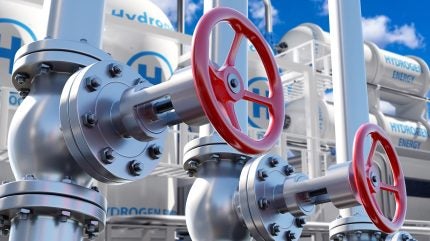
The Northwest Europe hydrogen strategy has been updated, reflecting the region’s commitment to low-emission hydrogen development, according to the latest report by the International Energy Agency (IEA).
Accounting for 40% of Europe’s hydrogen demand, the region is aiming to develop up to 35GW of electrolyser capacity by 2030.

Discover B2B Marketing That Performs
Combine business intelligence and editorial excellence to reach engaged professionals across 36 leading media platforms.
France has recently revised its National Hydrogen Strategy, adjusting its 2030 target to 4.5GW while Germany and Switzerland have also updated their hydrogen strategies, emphasising import strategies and market integration.
Northwest Europe is a significant player in the global hydrogen market, with a current demand of around three million tonnes per annum (mtpa).
The region is leveraging its interconnected gas network to distribute low-emission hydrogen, the report said.
Despite the ambitious targets and the potential for significant production increases, less than 8% of the projects are fully committed, highlighting the need for further investment and development to meet the 2030 goals.

US Tariffs are shifting - will you react or anticipate?
Don’t let policy changes catch you off guard. Stay proactive with real-time data and expert analysis.
By GlobalDataThe European Union’s Renewable Energy Directive (RED III) is set to boost renewable hydrogen use in industry and transport, but member states are lagging in its implementation.
The maritime sector is also being targeted for hydrogen-derived fuel use, driven by new international regulations.
According to the IEA, Northwest Europe could produce close to 8mtpa of low-emissions hydrogen by 2030, covering 2% of the region’s primary energy demand.
Electrolytic hydrogen is expected to dominate the low-emissions hydrogen production in Northwest Europe, with Denmark, Germany, the Netherlands, and the UK leading the way.
The region’s electrolyser manufacturing capacity, which constitutes 85% of Europe’s total, is also set to expand, reinforcing its technological leadership in the hydrogen sector.
This expansion could see an eight-fold increase in Europe’s production capacity by 2030, with Northwest Europe contributing around 70%, according to the report.
Trade in hydrogen and its derivatives is also projected to grow, with Northwest European countries poised to become major players in the global import market by 2030.
The region’s strategic updates and investments in hydrogen infrastructure are crucial steps towards a more sustainable energy future.
The EC has allocated nearly €1bn ($1.1bn) to boost the production of green hydrogen within the EEA.
A hefty investment is directed towards advancing 15 chosen projects, with an anticipated output of 2.2mt of green hydrogen over a decade.
The scheme is poised to cut down more than 15mt of carbon emissions, thereby playing a crucial role in the EU’s strategy to reduce its carbon footprint.





